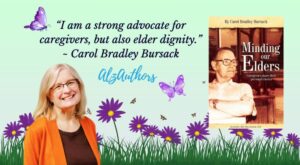Exploring the Concept of Single Gender Senior Living
A friend and I recently toured a veteran’s home in a midsize Minnesota town. The facility was beautifully designed and superbly run. The only thing that struck me as unusual was that I didn’t notice any women.
Then I read the client roster. It showed that some female veterans and/or wives of veterans also live there, so while the abundance of mostly World War II era veterans were men, women were also part of the home’s population.
About a week later, I was asked to write about gender-specific care homes. Naturally, this assignment brought to mind my thoughts about the veteran’s facility. I was thoroughly impressed by the home and also felt assured that women were a part of the culture, even if my timing was slightly off when I made my mid-morning visit.
Somehow, knowing that there were both men and women living in the home made me feel good, and the new assignment forced me to examine why that was the case.
Reasons for gender-specific care homes
I began my research by asking clinical bioethicist Viki Kind for her thoughts. Viki has interviewed me on radio in the past, so I felt that turnabout was fair play. As she does from time to time, she brought up points that I hadn’t considered.
“I think gender-specific long-term care facilities can be an important option for the LGBT community who unfortunately face abuse and discrimination in many facilities,” Viki told me. “People deserve to feel safe in their home, including their long-term care home where they are especially vulnerable to the staff.
“I also believe that gender-specific facilities for women may be beneficial,” she continued. “Research has shown that all-female colleges, such as Wellesley, are well-known for meeting the needs of women in a way that mix-gendered universities don’t.”
I regularly receive news releases about the LGBT segment of the aging population and the discrimination that these people experience in some care facilities. Viki, who is, after all, a clinical bioethicist, has likely worked on discrimination cases, so her opinion definitely lends weight to the need for the option of gender-specific care homes.
Anne Hays Egan, of New Ventures Consulting, also feels that there are some people who may benefit from gender-specific homes.
Anne said, “It’s important to identify the research about the gender-specific issues in older adults that drive the need for the creation of gender-specific Alzheimer’s facilities.
“This should include the identification of the types of people for whom gender-specific care is best suited, analysis of effective practices…
Minding Our Elders: Caregivers Share Their Personal Stories. “For anyone having to walk the last segments of life with a loved one, read this.” …Delores
Shop Silverts Adaptable clothing:
Discover the Difference. EGOSAN – the Top-Rated incontinence brand from Italy. Now Available on Amazon.








